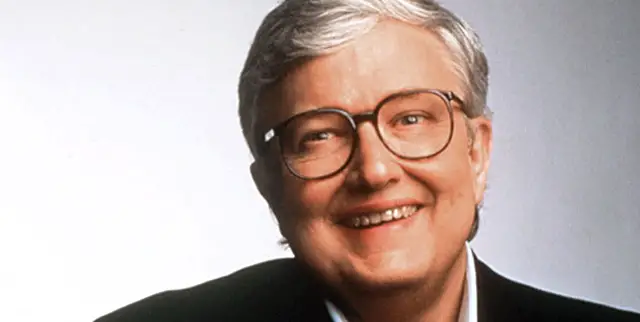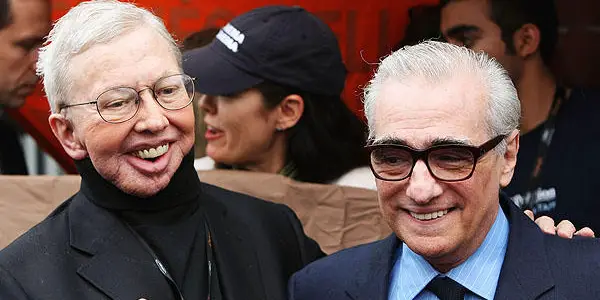LIFE ITSELF: A Perfect Eulogy

I'm a film buff from South East England. I run…
Life Itself is a superlatively crafted documentary that gives a compelling, poignant insight into Roger Ebert, while also delving into the subject of film criticism and its relationships with the film industry.
When I want to see a film’s critical reception, I head for Rotten Tomatoes rather than IMDB, because the latter is saturated with fan-boys and uninformed opinion. Rotten Tomatoes introduced me to many different critics who wrote for reputable sources such as The Guardian, The New York Times and The Telegraph, but time and again I was drawn to the small thumbnail image of a white haired, bespectacled man who wrote for the Chicago Sun-Times. I had no knowledge of Roger Ebert’s fame at this point, I was just naturally drawn to his image when I selected the ‘Top Critics’ section.
Introduction to Roger Ebert
My relationship with Ebert started off well, but I soon found reviews that made me recoil in disagreement. His dismissal of the excellent ‘cult film.’
Despite having considerable disagreements with him and finding more common ground with critics like Mark Kermode, I always kept an eye on Ebert’s output and followed the details of his dreadful illness that he managed with such humour and bravery. I was very intrigued when I read that Ebert‘s memoir Life Itself was being adapted into a documentary by Hoop Dreams director Steve James.

The documentary begins in December 2012, showing an Ebert whose jaw has been surgically removed and is almost completely immobile owing to cancer of the spine. Despite his sorry condition, Ebert is in good spirits throughout his screen presence, using speech software to jovially communicate with his wife Chaz, director Steve James, and his extended family.
The documentary tells Ebert’s story in a linear fashion, occasionally returning to the present day (December 2012 – April 4, 2013) and following what turned out to be his final five months of illness and rehabilitative efforts. Ebert’s struggle is shown in detail, and the scenes in which he is fed through a tube in his neck are particularly hard to watch.
Outside of his illness is, of course, a career full of successes. Unsurprisingly, Ebert was a headstrong, precocious young man with a maturity beyond his years. He left a large impression as Chief Editor of The Daily Illini, and by 1967 he was Chief Film Critic of the Chicago Sun-Times. Ebert didn’t realize how lucky he was, as he was about to get paid to watch everything New Hollywood had to offer in Chicago’s best auditoriums!
I envisaged Ebert to be quite straight laced, so I was surprised to hear of his antics in Chicago dive bars and his penchant for Johnnie Walker Black Label. Indeed, his penchant is more accurately described as an addiction; for all his motivation and early success at the Sun Times, Ebert would apparently ‘walk home and wish he was dead’ after some nights out.
Gene Siskel – professional enemy
After detailing his print career, Pulitzer Prize, and eventual teetotalism, the documentary begins to chart Ebert’s relationship with his ‘professional enemy’ Gene Siskel, the chief film critic at the rival Chicago Tribune.
The first installment in their television career was Sneak Previews, which they helmed from 1975 – 1982. Executive Producer Thea Flaum said that Ebert was ‘wooden’ initially, but I don’t think Ebert was ever a natural when delivering straight to the camera – it was only during heated debates with Siskel that he would really get into his stride.

Sneak Previews and At The Movies offered the enlightening rarity of two assertive and erudite people disagreeing on something and eloquently arguing about it without regard for each other’s feelings. Rather than being directly spoken to, the viewer would sit in on these spirited discussions, both laughing and learning. The documentary has an amusing montage of vitriol, finger pointing and even damning quips from Ebert like ‘Films should be reviewed in context, you know it and should be ashamed of yourself!’
Their often animated on-screen relationship is well known, but Life Itself reveals just how genuinely cantankerous and hostile they could get. Their animosity is highlighted in some old rushes where Ebert repeatedly and mean-spiritedly criticizes Siskel‘s line delivery, resulting in many arduous takes and Siskel calling Ebert an asshole – it’s very catty stuff. There are also other stories of how Ebert’s willful personality sometimes manifested into churlish and controlling behaviour. However, it was the same drive combined with his adapting to the times that caused him to write for half of cinema’s history.
Although their competitive relationship sometimes turned toxic, they achieved an influence that’s never been matched before or perhaps since. The brevity of their ‘Two Thumbs Up!’ motto proved very popular with audiences, adorning scores of film posters and becoming a critical seal of approval.
A friend of the filmmaker
More unique than his influence on cinematic opinion was his influence on filmmakers both big and small. New York Times film critic A.O. Scott comments on this: ‘Unlike just about the rest of us, Roger arrived at this point where he was the peer of the people he wrote about. I think it’s very complicated when you have personal relationships and friendships with these people, because it cannot but cloud your judgement.’
The most profound of Ebert‘s celebrity relationships was with Martin Scorsese; the existence of films such as After Hours, Goodfellas, The Departed and anything post-1982 can be credited in large part to Siskel and particularly Ebert. Scorsese, who was going through his third divorce and had developed a bad cocaine problem, received a much needed morale boost with an award given to him by the duo at the 1982 Toronto International Film Festival – ‘It was the only thing that saved me, or made me want to continue just living… I knew that they believed in me, I have it in a special place in my house now where only I can see it… I see it about every 5/6 minutes… I didn’t feel inhibited with Roger, he was that close.’

Don’t be fooled into thinking Ebert was a sycophant, his harsh review of The Color of Money is evidence that he didn’t allow his friendship to cloud his judgement like A.O. Scott suggested. Scorsese‘s reaction to The Color of Money review was even more compelling than that to his Toronto award: ‘Oh!… devastating. That was a way of condemning and helping, ‘you’ve done this once, now watch yourself’ as opposed to toxic, poisonous, unkind, ungenerous, lack of charity.’ It’s fascinating to hear a filmmaker of Scorsese‘s caliber taking heed of constructive criticism, and there being no ill-will felt by either critic or artist. Although I personally like The Color of Money, Ebert‘s review is an example of film criticism at its finest and a testament to his revered professionalism.
Film criticism needs populists like Ebert
With a host of interesting speakers, a keen eye for detail and slick presentation, Life Itself is a perfect documentary and eulogy. What I think it highlights most is the sad absence of film criticism in television; while the best critics of today like Mark Kermode are engaging and insightful in print, online and on radio, these formats are still somewhat on the periphery compared to the exposure and credibility of network television.
Film criticism is certainly dead on British TV. Instead of an impassioned and knowledgeable specialist, the BBC in their infinite wisdom decided that their flagship film programme needed a trivial generalist with nice white teeth, so they recruited Claudia Winkleman. I’d advise BBC management to watch Life Itself – they just might remember their talented employee Mark Kermode over on BBC Radio 5 Live.
Do you revere Ebert’s opinion? Have his boots been filled on television? Please have your say in the comment section below.
https://youtu.be/j9ud1HUHgug
(top image source: abcnews.go.com)
Does content like this matter to you?
Become a Member and support film journalism. Unlock access to all of Film Inquiry`s great articles. Join a community of like-minded readers who are passionate about cinema - get access to our private members Network, give back to independent filmmakers, and more.
I'm a film buff from South East England. I run Hawkensian.com, which comprises mostly film reviews but also various opinion pieces on history and politics.











